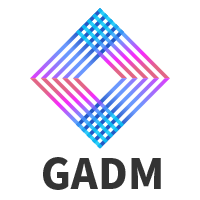2025 International Conference on Generative Artificial Intelligence and Digital Media (GADM 2025), will be held in Dali, China, from March 14-16, 2025.
As a leading role in the global megatrend of scientific innovation, China has been creating a more and more open environment for scientific innovation, increasing the depth and breadth of academic cooperation, and building a community of innovation that benefits all. Such endeavors are making new contributions to the globalization and creating a community of shared future.
This conference will convene academic experts, researchers, and industry leaders from around the world to explore the profound impact of generative artificial intelligence (AI) on the field of digital media. With the rapid advancement of AI technology, generative AI demonstrates significant potential and challenges in areas such as artistic creation, content generation and user experience.
The conference will focus on several key themes, including the fundamental theories and methodologies of generative AI, its applications in digital media, enhancements in user experience, and future trends in technological development. We encourage researchers from diverse disciplinary backgrounds to submit original research papers and case studies, sharing their latest findings and experiences in the intersection of generative AI and digital media.
The goal of this conference is to promote communication and collaboration, fostering innovative applications of generative artificial intelligence, and providing a high-level dialogue platform for both academia and industry. We look forward to your participation in jointly exploring how to integrate generative AI with digital media to create a richer, smarter, and more sustainable content ecosystem.
Full Paper Submission Date: January 10, 2025
Notification Date: February 14, 2025
Registration Date: February 28, 2025
Conference Dates: March 14-16, 2025
All papers will be reviewed by two or three expert reviewers from the conference committees. After a careful reviewing process, all accepted papers will be published in the Conference Proceedings, and submitted to EI Compendex, Scopus for indexing.
Note: All submitted articles should report original results, experimental or theoretical, not previously published or being under consideration for publication elsewhere. Articles submitted to the conference should meet these criteria. We firmly believe that ethical conduct is the most essential virtue of any academics. Hence, any act of plagiarism or other misconduct is totally unacceptable and cannot be tolerated.




